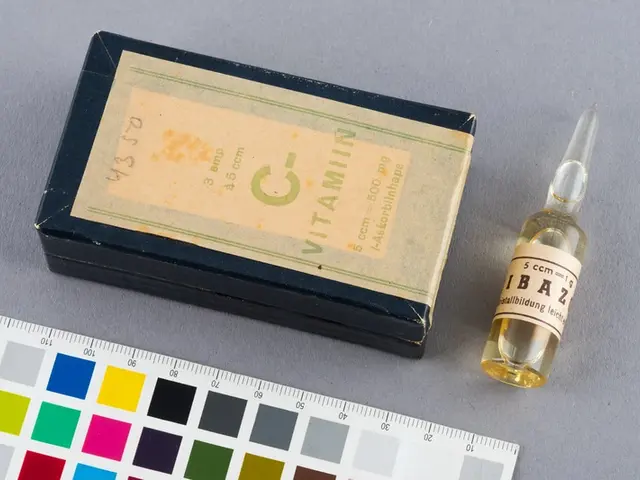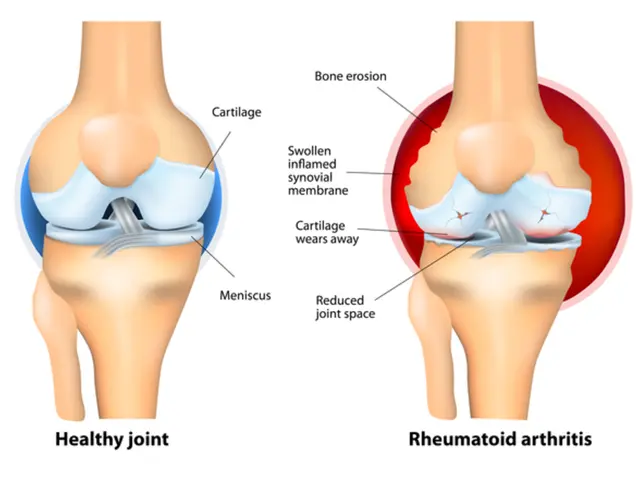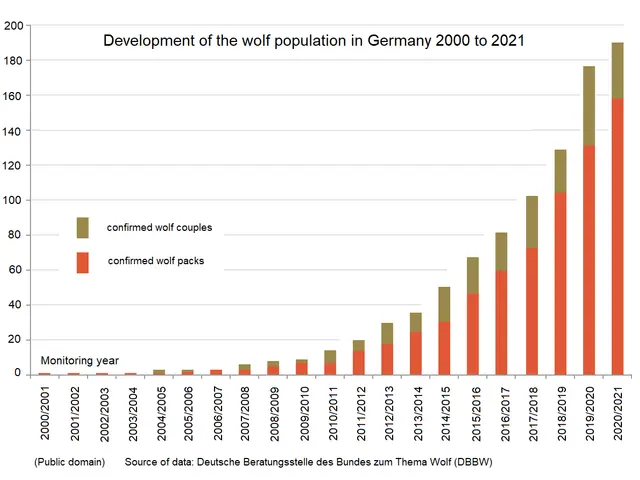Boosting Your Immunity with Unconventional Energy Sources
Feeling under the weather and losing your appetite? You might worry about missing out on essential nutrients, but what if fasting or a diet that favors ketones can help boost your immune system instead? Let's dive into the fascinating world of ketones and their impact on immune health!
Ketone Bodies: The Powerhouse Behind Fasting and Keto Diets
At the heart of the "fasting is better" debate are ketone bodies. These metabolic by-products, produced by the liver during periods of low glucose availability, become more abundant when food is scarce or when following a ketogenic diet. They're like the body's backup energy source for the brain and other organs, particularly during exercise or fasting[1].
The Magic of Ketones on Immune Health
A group of scientists at Yale discovered that mice on a ketogenic diet could better ward off the flu virus compared to mice consuming a high-carb diet[2]. Soon after, research from another team demonstrated that a restrictive diet aided mice in recovering from a bacterial infection[3]. These discoveries led to the belief that ketones help counteract the oxidative stress caused by bacteria[3].
More recently, researchers at The Van Andel Institute made another connection between ketone bodies and the immune system. Their study revealed that T-cells (immune cells) actually prefer ketone bodies over glucose as a fuel source, and that ketone bodies improve T-cell function by reprogramming them to better combat threats[4]. When ketone production is reduced – for instance, due to a high-carb diet – T-cells may not fight infections as effectively[4].
Fueling Your Immune System with Ketones
Moving forward, the team at The Van Andel Institute plans to explore how fasting and ketone body supplementation can influence immune function. These findings could pave the way for personalized dietary recommendations to enhance infection treatment, as well as for cancer and other disease therapies[4].
But how can you give your immune system a ketone boost now? Two courses come to mind, and some people actually combine them:
- The Keto diet restricts carbohydrates and sugars, promoting the production of ketone bodies[1]. It can make it easier to then try intermittent fasting, which has several forms to choose from[5].
- Intermittent fasting might be more accessible, as there are various methods to follow[5]:
- Alternate day fasting, where you eat anything you want one day and nothing the next
- A modified alternate-day fast schedule, which involves eating 500 calories on fast days
- A more moderate form of intermittent fasting that limits your daily eating window to eight hours and fasts for 16 hours, albeit it may be less likely to produce ketones
Do consult your doctor before starting either, just to be safe[5].
Editor's note: Discover the power of alkalizing your body for increased energy, weight loss, improved digestion, strengthened immunity, and optimal health! Click here to explore The Alkaline Secret now and transform your life today!
Sources:
- Keytene Bodies and Immune System: Potential Roles and Benefits - Diabetes Metabolism Research Reviews
- Ketolysis Drives CD8+ T Cell Effector Function Through Effects on Histone Acetylation - Immunity
- Ketogenic Diet Improves the Inflammatory Response to Sepsis - FASEB Journal
- Impact of Ketone Bodies on Immune Homeostasis and Function - Trends in Molecular Medicine
- Intermittent Fasting: A Review of What We Know (So Far) - Obesity Reviews
- In the study from Yale, it was observed that mice on a ketogenic diet showed improved resistance to the flu virus, suggesting that ketones could potentially aid in boosting immune system function.
- Recent research from The Van Andel Institute revealed that T-cells (immune cells) function better with ketone bodies as a fuel source, implying that a diet that promotes ketone production could enhance immune system's ability to combat threats.
- As ketone bodies may improve immune system function, adopting either a ketogenic diet or intermittent fasting (or both) could offer a way to boost ketone production and potentially reinforce the immune system.







